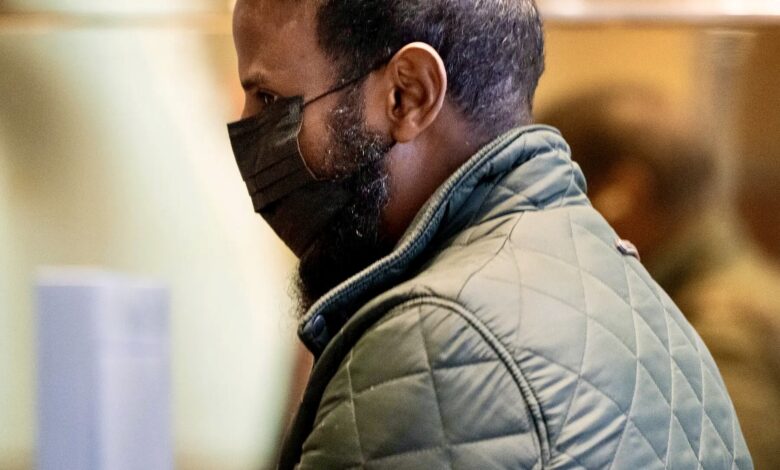A Somali-American man was sentenced to 28 years in prison in the largest food fraud case, amounting to $47 million, during the COVID-19 pandemic.

New York – Free Yemen Eye – From New – York Times
A Minnesota man was sentenced this week to 28 years in prison for his role in a multimillion-dollar fraud scheme that exploited a federally funded program meant to feed hungry children during the Covid-19 pandemic.
The man, Abdiaziz Shafii Farah, 36, of Savage, Minn., played a leading role in the scheme, which involved a nonprofit called Feeding Our Future, federal prosecutors said.
Mr. Farah, who was the co-owner of a business called Empire Cuisine & Market, and other defendants stole more than $47 million from the program by claiming to have served 18 million meals to children at more than 30 food distribution sites, prosecutors said.
After enrolling Empire Cuisine in the Federal Child Nutrition Program in April 2020, Mr. Farah opened several food sites and began falsely claiming to have served thousands of children a day, prosecutors said. In fact, many of the sites served no meals at all, prosecutors said.
As part of the scheme, he created bogus paperwork, submitted fraudulent claims, doled out proceeds to others involved and paid kickbacks, prosecutors said.
Mr. Farah personally stole than more than $8 million from the program during the 18 months he was involved in the scheme, prosecutors said. He used the money to buy a Porsche, a GMC truck and a Tesla, as well as real estate in Minnesota and Kentucky, prosecutors said. He also diverted more $700,000 to a Kenyan real estate partnership, they said.
“Bro the next multi legit millionaires will be me and you,” he wrote in a text message to a co-defendant, according to federal prosecutors.
In June 2024, after a trial that lasted more than a month in Minnesota, a federal jury convicted Mr. Farah of conspiracy to commit wire fraud, conspiracy to commit federal programs bribery, false statements in a passport application, conspiracy to commit money laundering, federal programs bribery, wire fraud and money laundering.
Mr. Farah’s sentence, which was handed down on Wednesday, was the longest one yet in the sprawling case. Seventy-three defendants have been charged; 44 have pleaded guilty and seven have been convicted at trial, according to the U.S. attorney’s office in Minnesota. Five have been sentenced.
Mr. Farah has also pleaded guilty to a charge that he and others tried to bribe a juror during his federal trial by offering $120,000 in cash in exchange for a not-guilty verdict, prosecutors said. He is awaiting sentencing in that case.
In imposing the 28-year sentence, Judge Nancy E. Brasel of U.S. District Court for the District of Minnesota said that Mr. Farah, who was born in Somalia, had acted out of “pure unmitigated greed,” according to the U.S. attorney’s office.
“The repercussions of your crime will be felt in Minnesota and in your community — the refugee community — for a long time,” she said, according to the office.
Mr. Farah’s lawyers, Andrew S. Birrell and Ian S. Birrell, did not immediately respond to an email seeking comment.
In court papers, they had urged Judge Brasel to show leniency, saying it would be unjust to give Mr. Farah a longer sentence than the ones given to defendants in other high-profile fraud cases. They pointed to Sam Bankman-Fried, the founder of the cryptocurrency exchange FTX, who was sentenced to 25 years in prison, and Elizabeth Holmes and Ramesh Balwani, the leaders of the failed blood-testing company Theranos. Ms. Holmes was given more than 11 years and Mr. Balwani nearly 13 years.
It would be wrong to treat Mr. Farah “more harshly than many of the worst fraud offenders in American history — offenders with loss amounts hundreds of times greater; who directly caused many people to suffer; and who destabilized some of the major economic systems in our country,” the lawyers wrote.
Joseph H. Thompson, the acting U.S. attorney for the District of Minnesota, said that Mr. Farah was one of the three key defendants charged in the case. The others, he said, were Salim Said, who oversaw a bogus kitchen, and Aimee Bock, the former executive director of Feeding Our Future. Sentencing hearings have not been scheduled for Ms. Bock and Mr. Said.





